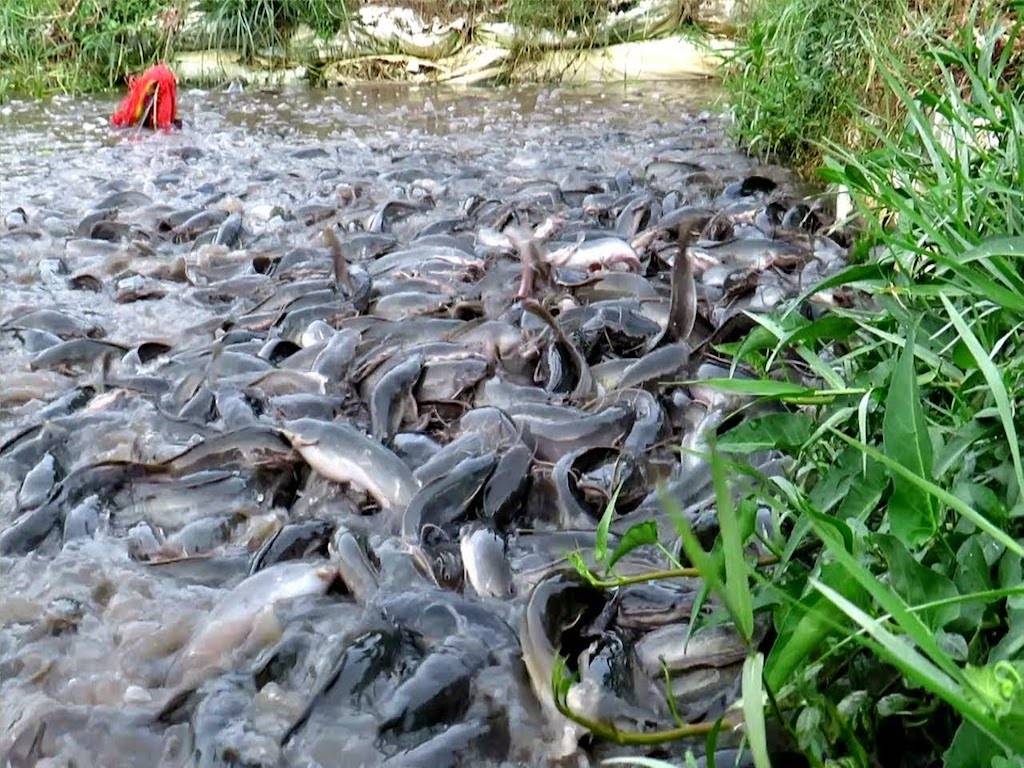
The growing fear for bird flu has served as a blessing for the fish farmers in many Indian states, with vigilant customers looking for substitutes in seafood and meat to replace their dietary chicken and eggs. Now, the question arises whether the fish you eat are safe?
An insightful examination directed across 241 fish farms located across 10 states of the country has discovered proof of high levels of lead as well as cadmium contamination in fish farms and other indications of serious infringement in general well-being and food safety guidelines just as ecological animal health.
When you consider fish farms, the state of Tamil Nadu has the lowest numbers with respect to water quality. Farms located in the states of Andhra Pradesh, West Bengal and Pondicherry displayed higher levels of public health risks. Tamil Nadu, Bihar and Orissa farms have been found to be the most environmentally damaging.
Fishes are toxic for human consumption:
Fish farms throughout the states of India were found to have elevated levels of both lead and cadmium tainting. These segments upon entering the human body have the ability to connect with the body cells and lead to long term harm. Fish brought up in such polluted environments may contain hints of the unwanted chemicals and may wind up on plates of clueless buyers, causing internal issues for individuals. Most prone to such issues are small kids and pregnant women.
In Norway, the farmed salmon that was originally denounced and even barred by Russia in the year 2006 for containing elevated amounts of toxic compounds is a case in point. In exchange, Norway campaigned globally and finally gained permission to change the allowable amounts of cadmium and salmon lead.
Aquaculture study examiners have announced that around 40% of the fish farms use“prophylactic”anti-infection agents to deflect parasite flare-ups, which represent a further threat to fish and human well-being.
Water is not breathable for the fishes:
Most fish farms confront the issue of excess nitrogen adding to algal sprouts in lakes and ponds, as indicated by Koushik Raghavan, lead specialist of the examination. This is because of the insignificant or non-existent garbage removal systems utilized by the main part of comprehensive fish ranches.
"Eutrophication slices off the oxygen supply to the lower part of lakes, leaving a huge number of fish to pant for breath" Raghavanan said. In addition to the recycling of natural or intensive habitats, waste control is important for ensuring the quality of fish farmed by aquaculture.
The study also found evidence of human defecation in few of the fish farms. Along with that, in the state of Tamil Nadu, people are bathing using soaps near the fish farms. Also in the states of Bihar and West Bengal, there are waste dumping areas located near to fish farms.
Raghavan reports that the uncontrolled use of antibiotics in fish farms, aside from the apparent animal rights abuses, also presents a risk not only to fish but also to those who eat them. AMR (Antibiotic Microbial Resistance) is a serious issue that can affect human beings and can cause severe problems in the future.
Scientists are warning regarding the use of unsought chemicals by the livestock industry. Last year in 2020, nearly 2,000 kilos of fish was lost in the state of Kerala because of the use of formalin chemicals. Apart from Kerala, Delhi also reported several cases of formalin usage.
Waste mismanagement leading to outbreaks:
Almost 100% of reviewed fish farms were found inadequate with respect to waste administration and serious infringement reported in slaughter obligations.
Without proper waste control, a risky pattern of waste and antibiotics is made where medications are managed in an unchecked design to raise fish in appalling conditions. Absence of garbage removal creates problems for the fish, yet in addition damage the environment also.
"Almost all fish farms dump the waste in close by water bodies and streams, accordingly sending the dirtied water once again into the framework for human use," Raghavan clarifies.
Since the Covid-19 episode, numerous specialists called for changes in the way meat, poultry, and dairy are prepared. Be that as it may, the area stays scattered and unregulated.
The absence of guidelines in the fish cultivating sector is a significant reason to worry as it will lead to environmental as well as human health issues. The same also uncovers that fact that the animal welfare guidelines that are being followed in India are negligible. With fish farms projected to attempt almost 66% of India's stock of fish, it very well may be an ideal opportunity to take a gander at what's on your plate and how it arrived.

















